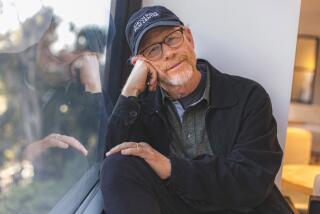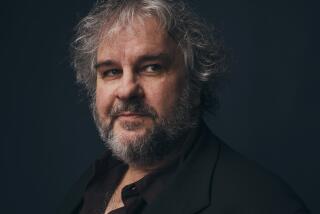Walter Shenson; Movie Producer for Beatles
- Share via
Walter Shenson, a motion picture producer whose best-known movies were the Beatles pictures “A Hard Day’s Night” and “Help!,” has died.
Shenson died Tuesday at the Motion Picture and Television Fund Hospital in Woodland Hills of complications from a stroke. He was 81.
It was just before the peak of Beatlemania in the early 1960s that United Artists pictures got the idea of making a film with the wildly popular band. To the studio, however, the movie was the tail of the dog. Their real interest was in the business possibilities from a soundtrack album.
Shenson was living in London and was known in the movie community for having made “The Mouse That Roared,” a 1959 film that was a breakthrough for the late British comedic actor Peter Sellers. A call from Hollywood changed his life.
“I was approached by United Artists to make a movie with the Beatles, and I said, ‘You mean those kids with the long hair and guitars?’ ” Shenson told a Times reporter several years ago.
So Shenson worked out a deal with Beatles manager Brian Epstein before the group came to America and caused a national sensation on “The Ed Sullivan Show.”
“After that,” Shenson once told a reporter for the Columbus Dispatch, “[the deal] would have been impossible.”
Richard Lester was hired to direct the comedy film, but Shenson still didn’t know what he had until he saw the first rushes.
“I came home and my wife asked me, ‘Can they act?’ I said, ‘I don’t know, but I can’t take my eyes off them.’ ”
Neither could the fans who flocked to the theaters time and again to see the Fab Four. “A Hard Day’s Night,” shot in black and white and in documentary style, was so popular that Shenson claimed that the studio recouped what it spent on the production--about $600,000--in just one day after the film’s release in 1964.
Shenson also worked out a deal with the studio so the rights to the film would revert to him--and the Beatles--after 15 years, which was just in time to exploit the video and cable TV revolutions.
“I’ve got to tell you, the money does come in,” Shenson said of the profits from his two Beatles films, which he and the group split equally.
Born in San Francisco and educated at Stanford University, Shenson began his film career after serving in the Army Air Corps during World War II. He first worked as a publicist for Paramount Pictures and then Columbia on films such as “From Here to Eternity” and “The Caine Mutiny.”
In the 1950s, he moved to London to handle Columbia’s overseas publicity. While there he began producing motion pictures. His success with “The Mouse That Roared,” a satire about a small duchy in Europe that declares war on the United States, was followed by a sequel, “The Mouse on the Moon.”
Shenson later recalled that the Beatles enjoyed making “A Hard Day’s Night.”
“They were very bright and curious,” he told the Associated Press. “They wanted to know everything, why the director did this or the cameraman did that. They came into the cutting room. They never bothered us; they were learning all the time.”
He developed a close relationship with John Lennon, whom he recalled in an interview with Rolling Stone several years ago.
“He used to get the biggest kick out of some of the reviews for ‘A Hard Day’s Night,’ ” Shenson said, “Writers would scrutinize the movie, find all kinds of symbolism and deep significance. John thought it was just hilarious, because he knew the movie was just a comedy.”
Shenson went on to produce films like “Reuben, Reuben,” starring Tom Conti, and “Echo Park” which starred Tom Hulce and Susan Dey. He directed one film, “Welcome to the Club,” a comedy that starred Jack Warden.
A longtime member of the Academy of Motion Picture Arts and Sciences, Shenson served five years as the chairman of that organization’s documentary film committee.
He is survived by his sons, Richard and Douglas, and four grandchildren, as well as his sister, Irma Levin of San Francisco.
The family suggests that any memorial gifts be made to the Motion Picture and Television Fund, the American Civil Liberties Union or the Anti-Defamation League.
More to Read
Only good movies
Get the Indie Focus newsletter, Mark Olsen's weekly guide to the world of cinema.
You may occasionally receive promotional content from the Los Angeles Times.










